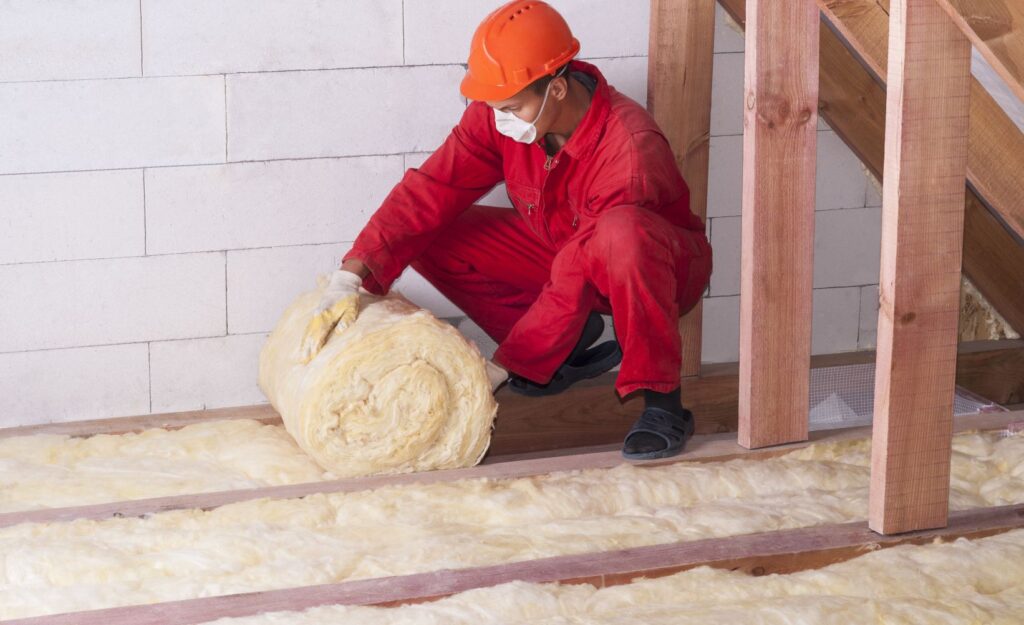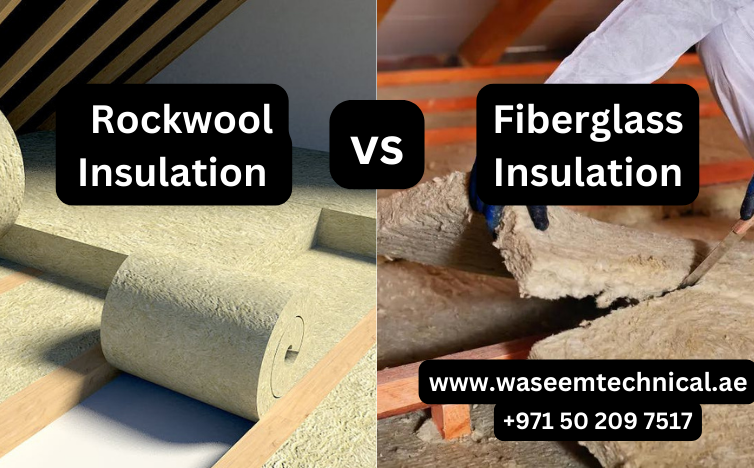When it comes to insulating your home or building against heat, cold, and noise, choosing the right insulation material is crucial. Fiberglass and rockwool are two popular options, each with its own set of advantages and disadvantages. In this article, we’ll delve into the differences between fiberglass insulation and rockwool insulation to help you make an informed decision for your insulation needs.
Fiberglass Insulation:
Fiberglass insulation is made from fine glass fibers and is one of the most commonly used types of insulation. It is available in batts, rolls, and loose-fill forms and is relatively easy to install. Here are some key points to consider about fiberglass insulation:

Insulation Properties:
Fiberglass insulation is effective at resisting heat transfer and provides good thermal insulation. It can help maintain consistent indoor temperatures and reduce energy consumption for heating and cooling.
Cost:
Fiberglass insulation is often less expensive than rockwool insulation, making it a popular choice for budget-conscious homeowners and builders.
Installation:
Fiberglass insulation is lightweight and easy to handle, making it suitable for DIY installation. It can be cut to fit around obstacles and is commonly used in walls, attics, and crawl spaces.
Fire Resistance:
Fiberglass insulation is inherently fire-resistant, as glass does not burn. However, it can melt under high heat conditions.
Rockwool Insulation:
Rockwool insulation, also known as mineral wool or stone wool, is made from natural rock minerals such as basalt and diabase. It is available in batts, rolls, and rigid board forms and offers several unique properties compared to fiberglass insulation:

Insulation Properties:
Rockwool insulation excels in providing thermal insulation as well as soundproofing. It has high density and excellent sound-absorbing qualities, making it ideal for reducing noise transmission between rooms and floors.
Fire Resistance:
Rockwool insulation is highly fire-resistant and can withstand temperatures up to 1,177°C (2,150°F) without melting. It is non-combustible and does not contribute to the spread of flames.
Moisture Resistance:
Rockwool insulation is hydrophobic, meaning it repels water and does not absorb moisture. This property helps prevent mold and mildew growth, making it suitable for humid environments such as basements and bathrooms.
Durability:
Rockwool insulation is durable and resistant to compression, maintaining its structural integrity over time. It does not sag or settle, ensuring long-term performance.
Which is Better?
The choice between fiberglass insulation and rockwool insulation ultimately depends on your specific requirements and priorities. Here are some factors to consider:
- If you prioritize cost-effectiveness and ease of installation, fiberglass insulation may be the better choice.
- If you require superior soundproofing, fire resistance, and moisture resistance, rockwool insulation is the preferred option.
- Consider the location and purpose of the insulation project, as well as local building codes and regulations.
Contact Waseem Technical Soundproofing Expert in Dubai For Acoustic Wall: +971 50 209 7517
FAQs:
Is rockwool insulation more expensive than fiberglass insulation?
Yes, rockwool insulation tends to be more expensive than fiberglass insulation due to its superior properties and manufacturing process.
Can fiberglass insulation be used for soundproofing?
While fiberglass insulation provides some level of sound absorption, rockwool insulation is more effective for soundproofing due to its higher density and sound-absorbing qualities.
Is rockwool insulation environmentally friendly?
Rockwool insulation is made from natural and sustainable materials, making it environmentally friendly. It is recyclable and does not contain harmful chemicals.
Which type of insulation is easier to install?
Fiberglass insulation is generally easier to install due to its lightweight and flexible nature. However, rockwool insulation can be installed with proper precautions and techniques.
Does rockwool insulation require special safety precautions during installation?
Yes, rockwool insulation can cause skin irritation and respiratory issues if proper safety precautions are not taken. It is recommended to wear protective clothing, gloves, and a mask during installation.
By weighing the pros and cons of fiberglass and rockwool insulation and considering your specific needs, you can choose the insulation material that best suits your requirements for comfort, energy efficiency, and safety.




